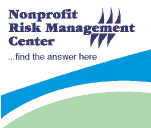|
May 21, 2008
So How Are We Doing?
When was the last time that the CEO/executive director of your organization received a performance appraisal? If you answered, “I can’t remember” or “a few years ago” your organization may be in good company, but missing a significant opportunity—and facing unnecessary risk. A recent report, “Boards of Midsize Nonprofits: Their Needs and Challenges” (12 pages pdf), issued by the Urban Institute, tells us that more than 25% of boards of mid-sized nonprofits (those with annual expenses between $500,000 and $5 million) do not do an adequate job of conducting regular performance appraisals on their CEOs’ performance.
Identifying and evaluating the effectiveness of staff leadership is one of the primary and most significant roles nonprofit boards play. Yet because of the potential for conflict or perhaps because everything is ‘going just great’ there may not appear to be any compelling reason to take out time to conduct an appraisal of the CEO. Boards that take this approach are missing a tremendous opportunity to engage with the mission of the nonprofit through an influential ambassador: the staff leader. If you are pleased with your staff leader’s track record, then let’s hear the applause! Don’t assume that it’s easy to stay motivated and juggle all the balls boards expect staff leaders to deftly handle. Retaining good leadership is a competitive sport these days: performance appraisals not only provide a forum to clarify where the organization is heading and what role the staff leader should play, but also how the board can support its CEO along that journey.
For organizations that are concerned about the direction of the nonprofit’s leadership, don’t take the risk that the staff leader will get left behind or too far out in front. Nonprofit governance is a team effort. Boards that don’t provide feedback about their dissatisfaction and instead clean house as a way to ‘start over’ are the ones that end up with a lawsuit at the next board meeting. And if you are a CEO who has not had a performance appraisal in a while, if you don’t speak up, you are also at fault for putting your organization (and your own career) at risk.
How to conduct effective and safe performance appraisals for staff and CEOs is just one of the topics that staff of the Nonprofit Risk Management Center will cover during upcoming regional conferences: Risk Management & Finance Essentials for Nonprofit Leaders coming to a city near you! For a closer look at the agendas and to register for a full-day of risk management know-how, click on these locations: Phoenix, AZ, May 28, 2008, Tucson, AZ, May 29, 2008, Dallas, TX, June 10, 2008, Little Rock, AR, June 11, 2008, Springdale, AR, June 12, 2008, Billings, MT, June 19, 2008, or Kennebunkport, ME, June 26-27, 2008.
Other Resources on Employment Practices from the Center:
You can call us at (202) 785-3891 or email us with your questions: info@nonprofitrisk.org.
IRS Clarifies Public Disclosure Rules for Unrelated Business Income Tax Filings
The IRS has released new guidance on public disclosure of the Form 990-T, Exempt Organization Business Income Tax Return. The guidance clarifies that: a) public inspection of the 990-T will be limited to a three-year look-back period; b) the IRS, as well as the filing organization, is required to make the Forms 990-T publicly available upon request; and c) disclosure includes any attachments, schedules and supporting documents that relate to imposition of the unrelated business income tax. NOTE: the disclosure requirements apply to all charities that file a Form 990-T, including churches and religious organizations, regardless of whether they are required to file a Form 990. The IRS is seeking comments on the new guidance, especially with respect to schedules or attachments that should not be made available for public inspection when attached to the 990-T.
Need Assistance Developing a Whistleblower Policy for Your Nonprofit?
Does your nonprofit have a whistleblower protection policy? Are you aware that lawsuits alleging retaliatory actions by employers are one of most common claims brought by disgruntled employees? Staff at the Nonprofit Risk Management Center are available to assist you with policy development through the Center’s affordable consulting services.
Next Month’s Webinar! Whistleblower Policies and Retaliation Claims
You can also brush up on the basics by joining us for next month’s Webinar, June 4, 2008, 2-3 pm EST, Whistleblower and Retaliation Claims: PoliciesThat Protect Your Nonprofit.
Your Questions Answered by the Center’s Staff
If you have a question, just go to our web site, click on the ADVICE tab and select “Technical Assistance.” A simple form allows you to submit your question to our staff experts. We’ll respond within 48 hours and you can look for your question in a future eNews!
Q. Is it possible to get insurance to cover volunteers who help out at various events? We are renting a venue for a fundraiser and one of the conditions of using the space is that we provide insurance for volunteers in the event they are injured while putting up decorations and assisting with the event.
A.The type of coverage you are looking for is "Volunteer Accident Coverage," which can be purchased to provide a safety net for your volunteers. The coverage is excess over existing health insurance coverage, so if a volunteer suffers an injury and they have their own personal health insurance, their own coverage would apply first. If they are uninsured and hurt while volunteering, the volunteer accident coverage would apply.
Need further assistance? The Center offers policy development consulting services at affordable rates. Call us! 202-785-3891.
|


